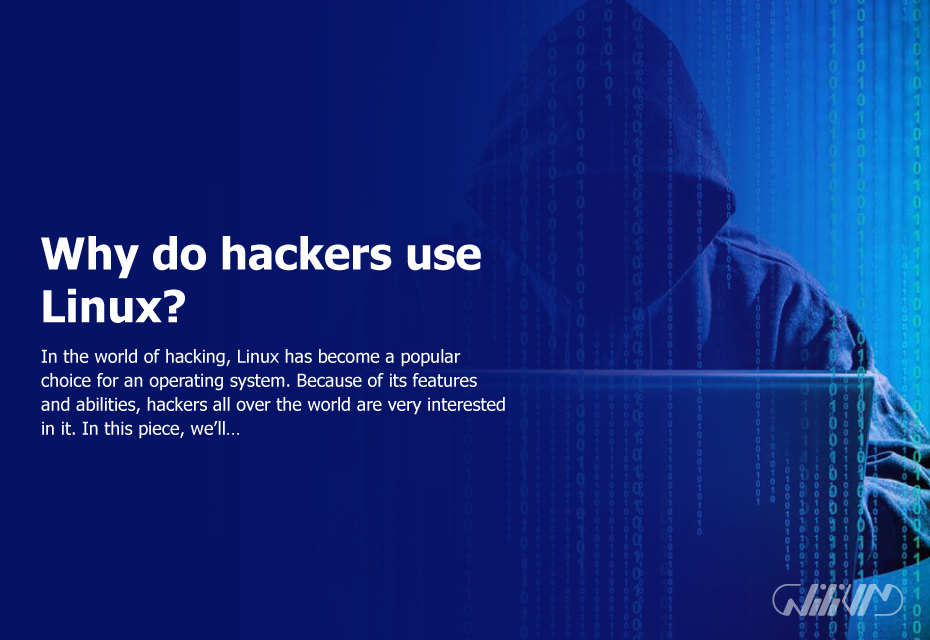Why do hackers use Linux?
In the world of hacking, Linux has become a popular choice for an operating system. Because of its features and abilities, hackers all over the world are very interested in it. In this piece, we’ll look at why Linux is so popular among hackers and explain what makes it special in the hacking community.
Contents
Introduction
Hackers, often presented as mysterious figures, participate in activities that attack weaknesses in computer systems. Linux, an open-source operating system, has gained major support within the hacking community. Let’s look into the reasons driving hackers to use Linux and how it fits with their goals.
Linux and Security
Linux is renowned for its robust security features. Being open source allows constant scrutiny by the global developer community, enabling rapid identification and patching of vulnerabilities. Hackers appreciate Linux’s ability to provide a solid foundation for their activities, reducing the chances of detection and interference.
Flexibility and Customization
One key aspect that attracts hackers to Linux is its flexibility for customization and development. Linux distributions offer a vast array of options to tailor the operating system according to specific needs. This freedom empowers hackers to fine-tune their environment, optimizing it for their hacking endeavours.
Extensive Toolset
Linux provides hackers with an extensive toolset, making it an ideal platform for their activities. A myriad of hacking tools is readily available, ranging from network scanners to password crackers. Popular Linux-based tools like Metasploit and Wireshark have become staples in the hacker’s arsenal, offering versatility and efficiency.
Anonymity and Privacy
Maintaining anonymity and privacy is crucial for hackers. Linux distributions like Tails and Kali Linux are specifically designed with security and privacy in mind. These distributions offer features such as built-in encryption, secure communication tools, and anonymizing networks, enabling hackers to mask their activities effectively.
Community and Collaboration
Linux’s vibrant community of hackers fosters collaboration, knowledge sharing, and tool development. The hacker community recognizes the power of collective intelligence and actively contributes to enhancing hacking techniques and tools. This collaborative environment offers valuable resources and support to hackers, promoting their growth and expertise.
The Command Line Advantage
Hackers prefer the command line interface in Linux for several reasons. The command line provides direct access to the system, offering precise control and flexibility. It allows hackers to automate tasks, create scripts, and execute commands efficiently, streamlining their hacking operations.
Compatibility with Exploits
Linux’s prevalence in servers, embedded systems, and Internet of Things (IoT) devices makes it an attractive target for hackers. Its architecture aligns well with exploit development and enables hackers to exploit vulnerabilities effectively. The vast attack surface presented by Linux-powered systems presents ample opportunities for hackers to penetrate networks and gain unauthorized access.
Avoiding Detection
Linux offers built-in features and techniques that help hackers avoid detection. For instance, it provides methods to obfuscate network traffic, disguise processes, and hide malicious activities. These features aid hackers in evading detection mechanisms and prolonging their unauthorized access.
Learning and Skill Development
Linux serves as an excellent platform for learning hacking techniques and skill development. Its open nature and vast community resources offer ample opportunities for aspiring hackers to acquire knowledge, experiment with tools, and sharpen their skills. The learning curve is steep but rewarding for those dedicated to mastering the art of hacking.
Misconceptions and Stereotypes
There are often misconceptions and stereotypes associated with hackers and their use of Linux. It is essential to understand that not all hackers engage in illegal activities. Ethical hackers, also known as white-hat hackers, use their skills to identify vulnerabilities and secure systems. Linux provides a legitimate platform for hackers to contribute positively to the field of cybersecurity.
Buy Linux VPS and experience the power hackers rely on
Conclusion
In conclusion, the prevalence of Linux among hackers can be attributed to its security features, flexibility, extensive toolset, anonymity capabilities, collaborative community, command line advantages, compatibility with exploits, evasion techniques, learning opportunities, and the distinction between ethical and malicious hacking. Linux empowers hackers with the tools and environment they need to pursue their activities while also fostering growth and skill development within the hacker community.
FAQs
Is hacking legal?
Hacking activities can be both legal and illegal. Ethical hacking, conducted with proper authorization to identify vulnerabilities and enhance security, is legal. However, unauthorized hacking, also known as black-hat hacking, is illegal and can lead to severe legal consequences.
How can Linux contribute to the field of cybersecurity?
Linux serves as a powerful platform for cybersecurity professionals and ethical hackers to develop and implement security measures. Its open nature and collaborative community encourage innovation and the sharing of knowledge, ultimately leading to improved cybersecurity practices.
Are all hackers motivated by malicious intent?
No, not all hackers have malicious intent. Ethical hackers, also known as white-hat hackers, leverage their skills to improve security by identifying vulnerabilities and assisting organizations in strengthening their defenses. It's essential to distinguish between the different types of hackers and their intentions.
How can individuals protect themselves from hackers using Linux?
To protect themselves from hackers, individuals should ensure their systems are up to date with the latest security patches, use strong and unique passwords, enable two-factor authentication, and employ reputable security software. Regularly backing up data and being cautious of phishing attempts are also important steps in safeguarding against hackers.







